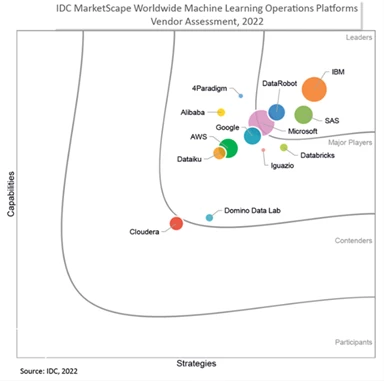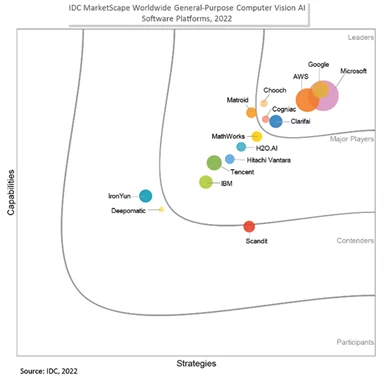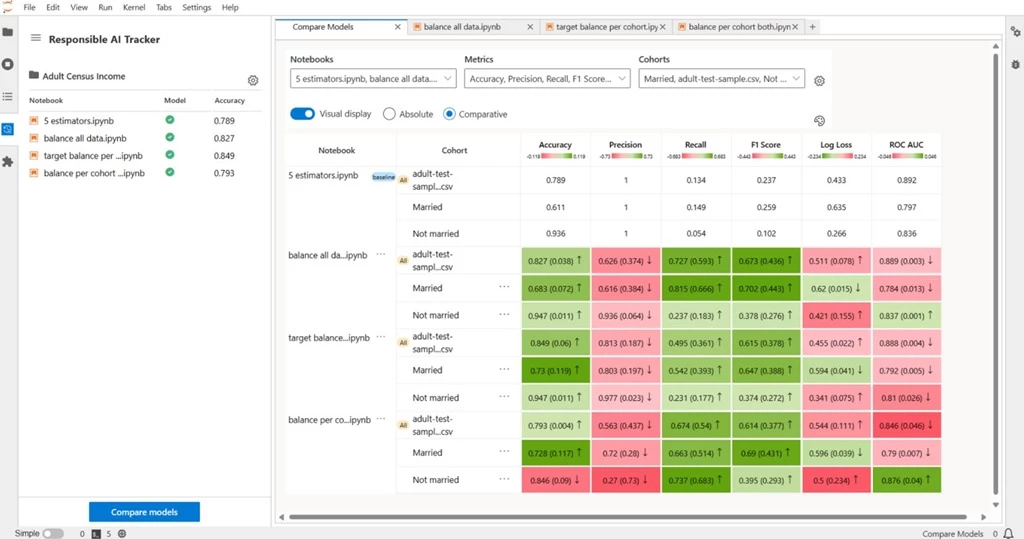It’s not every day that you get to be a part of something being discussed at dinner tables around the world-and we’re hearing this from customers and partners too. They’re eager to reimagine how they do business, embracing generative AI to deliver the next generation of apps and experiences. New and inspiring use cases surface daily, as AI technologies and practitioner communities mature. It’s both an exciting and humbling time for our team.
That excitement and inspiration would not be possible without the purpose-built AI infrastructure that can support the successful deployment and scalability of AI systems for large models. The infrastructure must have the means to rapidly expand with enough parallel processing power, low latency, and interconnected GPUs to train and inference complex AI models. This is why AI innovation leaders like OpenAI and Meta, and other companies around the globe, make Azure the cornerstone of their AI infrastructure.
Bringing together purpose-built AI infrastructure and managed data and AI services into one environment streamlines management and automation, often reducing the complexity of building, training, and bringing AI models into production. For example, Azure Machine Learning helps accelerate time to value with industry-leading machine learning operations (MLOps), open-source interoperability, and integrated tools to support data privacy, security, and real-time data processing.
There’s much conversation to have regarding new frameworks and strategies to help define and derive business value from AI. I hope you’ll join us March 14th for a virtual conversation between Susan Etlinger, Director of Data & AI Marketing at Microsoft; Atefah “Atti” Riazi, Chief Information Officer of Hearst; and Maribel Lopez, founder of Lopez Research as they share their unique perspectives on how business leaders can help their organization realize tangible return on investment (ROI).
I’m thrilled to share some of the new features and improvements helping our customers achieve more with data and AI this month.
Data is the fuel that powers AI
Our Executive Vice President of Cloud and AI, Scott Guthrie, says that data is the fuel that powers AI technology. Peak performance requires clean, integrated, and accessible data. Cloud solutions that are purpose-built to run AI models at scale also require operational databases, analytics, and governance solutions that work together-by design. To this end, the Microsoft Intelligent Data Platform is helping industry leaders like T-Mobile, BP, and Amadeus move beyond the cost and complexity of data fragmentation to a modern data estate built for AI innovation. Leveraging the platform opens opportunities for organizations to spend less time on data integration, and more time on value creation.
Benefits of Azure to on-premises and multi-cloud environments
Customers’ data management needs can vary widely depending on where they are on their digital transformation journey. Azure Arc extends the Azure platform to customers on-premises and multi-cloud scenarios for a unified hybrid environment. For example, Microsoft is partnering with Taoyuan City to deliver Taiwan’s first municipal hybrid cloud platform with Azure Arc, Azure Synapse, and Power BI. The result is a hybrid environment that unlocks data insights while delivering control across their entire data estate, plus significant time and resources savings.
Be sure to explore pay-as-you-go licensing for Azure Arc-enabled SQL to provide on-premises SQL Server customers with a cloud billing model to only pay for what they use on a consumption-based meter. This is a great option for customers with seasonal needs that do not require a full license. To help optimize SQL Server running on-premises and in multi-cloud environments, we also recently announced general availability of the SQL best practice assessment on Azure Arc-enabled SQL Server for customers to diagnose potential issues more easily.
Migrating Windows Server and SQL Server to the cloud
Justifying the move to cloud is a crucial decision for a business, and it could be difficult to know where to start. In December, we introduced Azure Migrate business case to help organizations remove the guess work in migration cost planning with data-driven calculations. With just a few clicks, Azure Migrate Business Case will help you build a business proposal to understand how Azure SQL can bring the most value to your business, including: on-premise vs. Azure total cost of ownership analysis, year-on- year cashflow analysis, and resource utilization insights to identify servers and workloads that are ideal for cloud. It also helps identify quick wins for migration and modernization including end of support Windows OS and SQL versions. To get started, visit Azure Migrate.
Introducing Adaptive Protection in Microsoft Purview
Announced this month in preview, Adaptive Protection in Microsoft Purview
leverages Insider Risk Management machine learning to understand how people are interacting with data. It helps identify risky activities that may result in data security incidents, then automatically tailors Data Loss Prevention (DLP) controls based on the risk detected. With Adaptive Protection, DLP policies become dynamic, ensuring that the most effective policy-such as blocking data sharing-is applied only to high-risk users, while low-risk users can maintain their productivity. This empowers security operations teams to operate more efficiently. Sign up for a free trial.
Innovate with industry-leading AI
While machine learning becomes more mainstream across industries, there are many challenges like data governance, security, data compliance, and auditability that companies need to consider when building and deploying models. Our approach to MLOps incorporates people, processes, and platform to deliver continuous value with fewer resources for machine learning-one of the reasons Microsoft was recently recognized as a leader in the IDC MarketScape: Worldwide for MLOps Platforms. Microsoft was also recently recognized as a leader in the IDC MarketScape: Worldwide General-Purpose Computer Vision AI Software Platform Vendor Assessment. As unstructured data like images and videos become more ubiquitous in the digital era, Microsoft is well-positioned to help organizations of all sizes leverage the power of computer vision to improve productivity, efficiency, safety, sustainability, and inclusivity.


Evaluate machine learning models
Last month we announced the general availability of the Responsible AI dashboard within the Responsible AI Toolbox, a suite of popular tools to support responsible AI deployments. The capabilities are open source on GitHub or can be accessed directly through the Azure Machine Learning platform. This month, we’ve launched a blog tutorial series exploring how to use the responsible AI dashboard and guide you through the entire process.
Today, we’re excited to announce two key capabilities to the Responsible AI Toolbox, the Responsible AI mitigations library and the Responsible AI tracker. First, the mitigations library helps machine learning practitioners experiment with different mitigation techniques more easily and manage common failures that may occur in data preprocessing. The library complements the toolbox’s Fairlearn fairness assessment tool, which focuses on mitigations applied during model training. Second, the responsible AI tracker uses visualizations to demonstrate the effectiveness of different mitigations for easier model comparison and validation. Practitioners can compare the performance of data subsets across model iterations to determine the most appropriate model for production. With these tools, organizations are better equipped to evaluate models to reduce biases and increase fairness.

Accelerate AI innovation in Azure Machine Learning
Machine learning requires secure collaboration among data scientists, machine learning engineers, IT admins, and developers. Organizations in regulated industries, like Belgium-based Isabel Group, rely on Azure Machine Learning to offer seamless integration through every step of the data pipeline. Microsoft continually improves product and business capabilities across the entire machine learning lifecycle to empower people of different skillsets. Below are some recent enhancements to help organizations get their models into production faster while ensuring enterprise-grade security and compliance in Azure Machine Learning:
Secure workspaces with network isolation for managed online endpoints (generally available): Offers the ability to secure the ingress and egress of managed online endpoints to help ensure compliance with enterprise security standards. Learn more about accessing storage services.
Compartmentalize access to machine learning data with identity passthrough (generally available): Uses role-based access controls (RBAC) to grant or deny users access to specific data. For example, when a training job in identity passthrough mode is submitted, Azure Machine Learning uses that identity to authenticate against data storage. Additionally, administrators can also restrict access for each user based on storage accounts, folders, or files and auditors can trace storage access requests back to specific users. Learn more about accessing storage services.
Train models using AutoML in Designer (preview): Employs an easy drag-and-drop ability to hook your data up to an AutoML task and deploy the best resulting model. An ideal solution for no-code/low-code users who want to build enterprise-quality machine learning models. Learn more about model training and deployment.
Skill up with Data & AI events and education
Build in-demand data and AI technical skills with Microsoft
Jumpstart your career or bolster your credentials with skilling resources from Microsoft. The new Cloud Skills Challenge for Azure Database Administrators offers free, interactive learning modules and the opportunity to engage with peers through a global community forum. For those with eyes on Azure certifications, the Microsoft Azure Connected Learning Experience (CLX) is designed to support exam readiness with on-demand resources and hands-on labs as well as cram sessions hosted by industry experts. Recently expanded tracks for Designing and Implementing a Microsoft Azure AI Solution and Administering Microsoft Azure SQL Solutions can help professionals build these in-demand skills.
For anyone interested in building apps with generative AI using Azure OpenAI Service, check out our new Introduction to Azure OpenAI Service learning course.
Join us for upcoming community events and skilling opportunities
I’d like to end my post by highlighting some of the upcoming events happening across Microsoft in March. These events are a great opportunity to meet other customers, partners, and technical experts across the Microsoft community to share stories and best practices. Please mark your calendars and join us.
Azure Open Source Day is a free on-demand virtual event on March 7th, bringing together developers, data scientists, and technical decision makers utilizing open source technologies. Presenters will explore open source projects like the Responsible AI Toolbox and collaborations with communities and technology partners like HuggingFace and NVIDIA. Register for Azure Open Source Day.
Microsoft Ability Summit is a free live digital event on March 8th where you can discover new accessible technologies and explore best practices to help everyone achieve more. In the meantime, you can also learn 6 ways to improve accessibility with Azure AI in our recent blog. Register for Microsoft Ability Summit.
Cosmos DB Conf is a free virtual developer event on March 28th co-organized by Microsoft and the Azure Cosmos DB community. Come and learn more about Azure Cosmos DB and see what others in the community are building. Register for Cosmo DB Conf.
Learn more about Azure Data and AI
Thanks so much for reading about the recent updates across our data and AI business over the last month. We have a lot of exciting things brewing and I can’t wait to share more product and service enhancements, customer stories, and upcoming news next month.
